Want to know the 5 most important skills you can develop to improve your relationship with a significant other or loved one?
Look no further! Here’s how:
-
- Learn how to take care of yourself when you’re having difficult thoughts and feelings.
- Learn how to take care of yourself when you’re having difficult thoughts and feelings.
- Learn how to take care of yourself when you’re having difficult thoughts and feelings.
- Learn how to take care of yourself when you’re having difficult thoughts and feelings.
- Learn how to take care of yourself when you’re having difficult thoughts and feelings.
Ha! Ok I’ve just outed myself around my love/hate relationship with “Top 3, 5, or 10” tips articles. No one article or blog post can give you the “top 5 things” that will ensure your relationships are healthy. At best, it’s a way to pass along some generally good advice. At worst, it instills a false idea that if we’re experiencing challenges in our relationships (and by the way who doesn’t?!), it means we can simply follow the rules and everything will work out.
As if a relationship was a problem to be solved and not an adventure to be lived.
Oh how I wish that I was wrong! With the way our minds work, we’d like nothing more than a straightforward, 5 step plan to get out of the pain or discomfort we might be in. It would be awesome if all relationship challenges were like flat tires. If the tire’s flat, just get out of your car, grab a jack and a spare, and change the tire (or pay someone else to do it). Whala! Fixed! Those of you who’ve been in the relationship game long enough to experience the highs and lows of any longterm friendship or partnership know that things aren’t that simple.
The first place to start when you’re experiencing disconnection with a loved one is with yourself.
Learning how to take care of yourself when you’re having difficult thoughts and feelings is essential to relational health. If you’re not bringing a whole-hearted, present, mentally and emotionally open person to the room, then it’s not likely the conflict will be resolved in a way that helps foster deeper intimacy or a collaborative spirit.
Need proof? (I always do.) So let’s say the “tool” you’re working on using in your relationship is to communicate expectations clearly. Ok, easy enough. So in a phone conversation with my husband, I clearly state: “I feel overwhelmed at work. I could really use some help from you. Will you please remember to wash the dirty dishes in the sink so I can come home to a peaceful house tonight?” He says, “Sure thing babe.” So expectations have been clearly communicated right? Check! Later, I come home from work, tired, hangry (yes that’s right–irrational irritability due to hunger!), and so relieved that at least I don’t have to worry about a dirty kitchen. Until I see that all the dirty dishes are still in the sink.
Can I get a collective gasp in the imaginary crowd? Dishes. Are. Still. In. The. Sink. My little relationship tip–communicate expectations clearly–has bitten the dust. What do I really need in this moment? NOT another “helpful” relationship tool. I need to practice my willingness to pause and navigate through my thoughts and feelings so I can intentionally respond to the situation rather than react habitually.
What’s a habitual reaction? Well it depends on you and your story. Here’s what it would look like in my head: “I can’t believe he didn’t do what I clearly asked him do! Maybe he doesn’t really care about me or how hard I’m working. He obviously doesn’t respect my needs. If he thinks I’m going to do those dishes he must be crazy.” And then I might huff and puff around until I see him and then watch out! I’m not one to let things go. He’ll definitely get an earful from me!
There are so many reasons why it’s crucial to a take a literal pause, and then create mental and emotional space before we respond.
But here’s one: when we react on our first impulses, we shut down the possibility of truly understanding the whole story! The whole story includes our experience, the experience of our loved one, and the story of the history of the relationship. What if after my little tantrum I learn that he got a flat tire on the way home from work. Spent 30 minutes in the pouring rain trying to fix it. And also remembered that we needed coffee for the next morning and stopped by the store to get it. He just got home a few minutes before I did.
Oh. Ok, well now I’m not so mad. I feel empathy for his rough ride home. And really sheepish that he was additionally delayed doing something thoughtful for us. (I don’t do mornings without coffee!) I feel shame about being a total jerk. When I react habitually in the moment, I treat my husband in a way that I don’t really value. My unskilled reaction could have really shut down an opportunity to have a fun and relaxed evening together. But more importantly, these types of reactions can have a negative cumulative effect on our experiences of trust, generosity, collaboration, and connection.
So what I really should have titled this blog is: The #1 Thing to Do–Learn How to Take Care of Yourself When You’re Having Difficult Thoughts and Feelings.
Because truthfully, if we’re willing to lean into things like disappointment and anger, and navigate that difficult inner experience with skill, we have an opportunity to respond to our relational challenges in a way that moves the relationship in a valuable direction. We’ll also feel closer the people we love and appreciate the most.
With love,
Cara
Team Luminary




